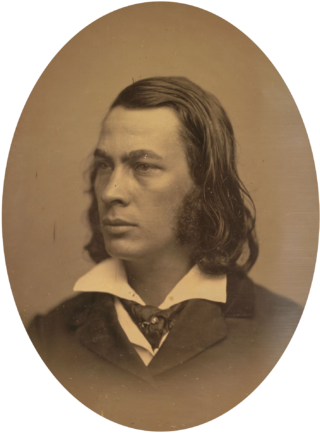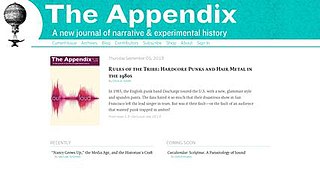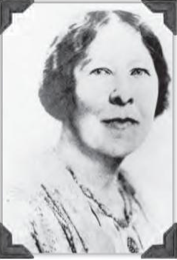Related Research Articles
World history or global history as a field of historical study examines history from a global perspective. It emerged centuries ago; leading practitioners have included Voltaire (1694–1778), Hegel (1770–1831), Karl Marx (1818–1883), Oswald Spengler (1880–1936), and Arnold J. Toynbee (1889–1975). The field became much more active in the late 20th century.
The historicity of Jesus is the question of whether or not Jesus of Nazareth historically existed. The question of historicity was generally settled in scholarship in the early 20th century, and the idea that Jesus was a mythical figure has been and still is considered a fringe theory in academic scholarship for more than two centuries, but has gained popular attention in recent decades due to the growth of the internet.
John William Ward (1922–1985), was the 14th President of Amherst College, a veteran of World War II, Professor of English and History at Princeton University, and Chairman of the Ward Commission.
Feminist history refers to the re-reading of history from a woman's perspective. It is not the same as the history of feminism, which outlines the origins and evolution of the feminist movement. It also differs from women's history, which focuses on the role of women in historical events. The goal of feminist history is to explore and illuminate the female viewpoint of history through rediscovery of female writers, artists, philosophers, etc., in order to recover and demonstrate the significance of women's voices and choices in the past. Feminist History seeks to change the nature of history to include gender into all aspects of historical analysis, while also looking through a critical feminist lens. Jill Matthews states "the purpose of that change is political: to challenge the practices of the historical discipline that have belittled and oppressed women, and to create practices that allow women an autonomy and space for self-definition"
African American literature is the body of literature produced in the United States by writers of African descent. It begins with the works of such late 18th-century writers as Phillis Wheatley. Before the high point of enslaved people narratives, African American literature was dominated by autobiographical spiritual narratives. The genre known as slave narratives in the 19th century were accounts by people who had generally escaped from slavery, about their journeys to freedom and ways they claimed their lives. The Harlem Renaissance of the 1920s was a great period of flowering in literature and the arts, influenced both by writers who came North in the Great Migration and those who were immigrants from Jamaica and other Caribbean islands. African American writers have been recognized by the highest awards, including the Nobel Prize given to Toni Morrison in 1993. Among the themes and issues explored in this literature are the role of African Americans within the larger American society, African American culture, racism, slavery, and social equality. African-American writing has tended to incorporate oral forms, such as spirituals, sermons, gospel music, blues, or rap.
University of Alberta Press is a publishing house and a division of the University of Alberta that engages in academic publishing.

The American Antiquarian Society (AAS), located in Worcester, Massachusetts, is both a learned society and a national research library of pre-twentieth-century American history and culture. Founded in 1812, it is the oldest historical society in the United States with a national focus. Its main building, known as Antiquarian Hall, is a U.S. National Historic Landmark in recognition of this legacy. The mission of the AAS is to collect, preserve and make available for study all printed records of what is now known as the United States of America. This includes materials from the first European settlement through the year 1876.

The Nieman Foundation for Journalism is the primary journalism institution at Harvard University.
Public history is a broad range of activities undertaken by people with some training in the discipline of history who are generally working outside of specialized academic settings. Public history practice is deeply rooted in the areas of historic preservation, archival science, oral history, museum curatorship, and other related fields. The field has become increasingly professionalized in the United States and Canada since the late 1970s. Some of the most common settings for the practice of public history are museums, historic homes and historic sites, parks, battlefields, archives, film and television companies, new media, and all levels of government.
John Sassamon, also known as Wussausmon, was a Massachusett man who lived in New England during the colonial era. He converted to Christianity and became a praying Indian, helping to serve as an interpreter to New England colonists. In January 1675, Sassamon was ambushed and assassinated. A mixed jury of colonists and Indian elders convicted and executed three Wampanoag men for his murder. These events helped spark the conflict known as King Philip's War, in which the New England Colonies defeated the Wampanoag and ended armed resistance by the Native Americans of southeastern New England.

The Archaeological Institute of America (AIA) is North America's oldest society and largest organization devoted to the world of archaeology. AIA professionals have carried out archaeological fieldwork around the world and AIA has established research centers and schools in seven countries. As of 2019, the society had more than 6,100 members and more than 100 affiliated local societies in the United States and overseas. AIA members include professional archaeologists and members of the public.

George Lippard was a 19th-century American novelist, journalist, playwright, social activist, and labor organizer. He was a popular author in antebellum America.

Pauline Alice Maier was a revisionist historian of the American Revolution, whose work also addressed the late colonial period and the history of the United States after the end of the Revolutionary War. She was the William R. Kenan, Jr. Professor of American History at the Massachusetts Institute of Technology (MIT).
Joseph Ferdinand Gould was an American eccentric, also known as Professor Seagull. Often homeless, he claimed to be the author of the longest book ever written, An Oral History of the Contemporary World, also known as An Oral History of Our Time or Meo Tempore. He inspired the book Joe Gould's Secret (1965) by Joseph Mitchell, and its film adaptation (2000), and is a character in the 2009 computer game The Blackwell Convergence.

Jill Lepore is an American historian and journalist. She is the David Woods Kemper '41 Professor of American History at Harvard University and a staff writer at The New Yorker, where she has contributed since 2005. She writes about American history, law, literature, and politics.

The Appendix was an online magazine of "narrative and experimental history." It was co-founded in the fall of 2012 by Benjamin Breen, Felipe Cruz, Christopher Heaney, and Brian Jones. A stated goal of the journal is that "scholarly and popular history need to come together." It ceased publication in 2015 after publishing eight quarterly issues.
The Society of American Historians, founded in 1939, encourages and honors literary distinction in the writing of history and biography about American topics. The approximately 300 members include professional historians, independent scholars, journalists, film and documentary makers, novelists, poets, and biographers, all of whom were selected for membership based on the literary excellence as well as the intellectual strength of their writing or presentation of American history.

Alicia Margaret Tyssen Amherst, Baroness Rockley was an English horticulturist, botanist, and author of the first scholarly account of English gardening history.

These Truths: A History of the United States is a one-volume book of American history written by award-winning historian and New Yorker writer Jill Lepore. It traces American politics, law, journalism, and technology from the Age of Discovery through the present day, focusing on America's founding truths and their role in uniting, dividing, and transforming the nation. These Truths was published by W. W. Norton in September 2018.
Adversarial journalism refers to a kind of journalism or a journalistic role where the journalist adopts an oppositional and combative style of reporting and interviewing. The goal of adversarial journalism is to reveal supposed wrongdoings of actors under investigation. Instead of being completely impartial, adversarial journalists take sides in what they believe to be true. They deliberately combine information with commentary or opinion in their writing. In particular, adversarial journalists remain relentlessly hostile and highly skeptical regarding government, big business companies, and political events, questions, institutions and personalities. Adversarial journalism is thought to be traditional in liberal democracies where journalism is regarded as a "Fourth Estate". It is also considered an extreme form of participant journalism or advocacy journalism. It has been contrasted with public or civic journalism.
References
This article includes a list of references, related reading, or external links, but its sources remain unclear because it lacks inline citations .(June 2018) |
- 1 2 Pfitzer, Gregory M. (2008). Popular History and the Literary Marketplace, 1840-1920. Amherst and Boston: University of Massachusetts Press. pp. 40, 41. ISBN 978-1-55849-625-5.
- ↑ Korte, Barbara; Paletschek, Sylvia (2014-03-31). Popular History Now and Then: International Perspectives. Bielefeld: transcript Verlag. p. 17. ISBN 978-3-8376-2007-8.
- ↑ De Groot, Jerome (2009), Consuming History: Historians and Heritage in Contemporary Popular Culture, Routledge, pg 15.
- ↑ "Tom Holland". University of Buckingham.
- ↑ Heinen, Sandra; Sommer, Roy (2009-09-04). Narratology in the Age of Cross-Disciplinary Narrative Research. Berlin: Walter de Gruyter. p. 228. ISBN 978-3-11-022242-5.